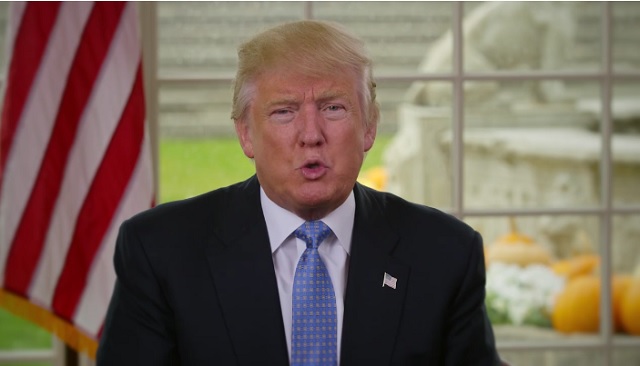
Jerusalem, Undefined | AFP | New protests flared in the Middle East and elsewhere Sunday over US President Donald Trump’s declaration of Jerusalem as Israel’s capital, a move that has drawn global condemnation and sparked days of unrest in the Palestinian territories.
Israeli Prime Minister Benjamin Netanyahu said the Palestinians needed to come to terms with Jerusalem’s long Jewish history.
“It’s always been our capital,” he said at a press conference with French President Emmanuel Macron in Paris.
“I think the sooner the Palestinians come to grips with this reality, the sooner we’ll move towards peace.”
Turkish President Recep Tayyip Erdogan, who has repeatedly warned of the consequences of Trump’s move, lashed out Sunday by calling Israel a “terrorist state” that “kills children”.
Netanyahu hit back, calling Erdogan a leader who “bombs Kurdish villagers” and “helps terrorists”.
Trump’s announcement on Wednesday sparked days of protests and clashes in the Palestinian territories. Four Palestinians were killed either in clashes or by Israeli air strikes in retaliation for rocket fire from the Gaza Strip.
On Sunday, a Palestinian stabbed an Israeli security guard at Jerusalem’s central bus station, seriously wounding him. The assailant was arrested.
Tens of thousands of people have protested in Muslim and Arab countries, including Jordan, Turkey, Pakistan and Malaysia.
On Sunday, further protests were held in countries including Lebanon, Indonesia, Egypt and Morocco as well as in the Palestinian territories.
Lebanese security forces fired tear gas and water cannons at several hundred demonstrators near the American embassy.
Tens of thousands also rallied in Morocco’s capital Rabat.
– Protests in Cairo, Jakarta –
In Jakarta, some 5,000 Indonesians protested in solidarity with the Palestinians, gathering outside the US embassy in the world’s most-populous Muslim country.
Students and professors in Cairo demonstrated at the prestigious Al-Azhar University, a spokesman said, and dozens of students protested at two other Cairo universities.
Palestinian protests on Sunday were smaller than in previous days.
Protests and clashes erupted in Al-Arroub refugee camp in the south of the occupied West Bank, leaving one Palestinian wounded by rubber bullets, the Palestinian health ministry said.
Separately, the Israeli military said it destroyed a Hamas tunnel from the Gaza Strip into Israeli territory — an incident unrelated to the recent unrest, but which threatened to further increase tensions.
Such tunnels have been used in the past to carry out attacks.
Trump’s declaration prompted near universal condemnation and diplomatic fallout, with warnings that it risks setting off a new round of violence in the turbulent Middle East.
US Vice President Mike Pence is due in the region later this month, but Palestinian officials say president Mahmud Abbas will refuse to meet him.
A US official said Sunday such a snub is tantamount to “walking away” from a chance to talk about peace in the Middle East.
“It’s unfortunate that the Palestinian Authority is walking away again from an opportunity to discuss the future of the region,” Jarrod Agen, Pence’s deputy chief of staff, said in a statement.
Abbas was to meet Egyptian leader Abdel Fattah al-Sisi in Cairo Monday for consultations “to discuss developments related to the United States’ recognition of Jerusalem as Israel’s capital”, said Bassam Radi, a spokesman for the Egyptian presidency.
Arab League foreign ministers on Saturday called on Washington to rescind the decision.
Despite the outrage, Trump’s UN Ambassador Nikki Haley insisted Sunday the Jerusalem declaration would “move the ball forward” on peace efforts.
However, UN Secretary General Antonio Guterres told CNN it might “compromise” the US drive for an Israeli-Palestinian accord.
 The Independent Uganda: You get the Truth we Pay the Price
The Independent Uganda: You get the Truth we Pay the Price





